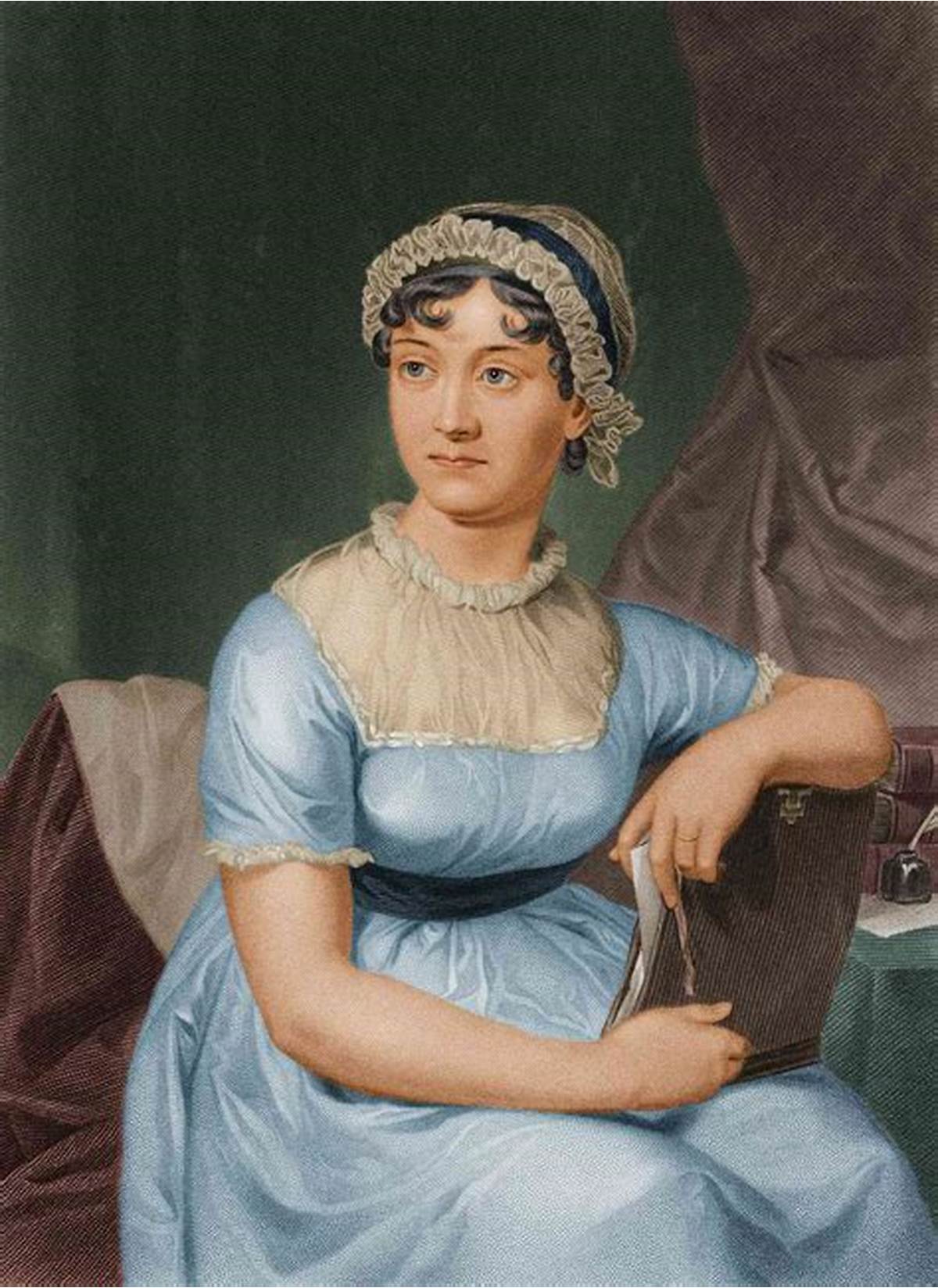

December 16, 1775 in Hampshire, England as the seventh child of her family, Jane austen is one of the most renowned and widely read English novelists of all time.
She is primarily known for her novels that interpret and critique the gentry. Her major works include Sense and Sensibility, Pride and Prejudice, Mansfield Park, Emma, Northanger Abbey,
and Persuasion. She leaves behind Sanditon, a novel with 11 full chapters and a 12th incomplete chapter. Unfortunately, Sanditon was never completed due to Austen's passing in 1817.
Jane Austen was not only a brilliant author but a political symbol of early feminism. Many suffragists used Austen as a rebel and role model in the first wave of feminism.
Her works are not considered "feminist" in the way that we may consider it today, but they did discuss the need for equality between sexes as her heroines are known to defy societal
norms and advocate for their right to make their own choices. Feminism portrayed by Jane Austen's work is not about dominating men but about women who demand equality and autonomy in
a society that is dominated by the patriarchy.
Jane Austen's fascination with the world of literature began quite early in her life. During her adolescence, she began to write her own novels with her first being Love
and Friendship, a romantic fiction parody formed as a series of love letters. Her second, The History of England, was a thirty four page parody of historical writing about England with
thirteen water color miniatures done by her sister, Cassandra, included. Later on, Austen made fair copies of her earlier works in bound notebooks containing novels, poems, short stories,
and plays which are referred to as Jane's Juvenila today. In 1789, she began to write longer and more sophisticated novels. From 1796 to 1797, Austen had been occupied with writing her
second book, First Impressions. The first draft of First Impressions was completed in 1797 when she was 21 years old. First Impressions would be later published as Pride and Prejudice.